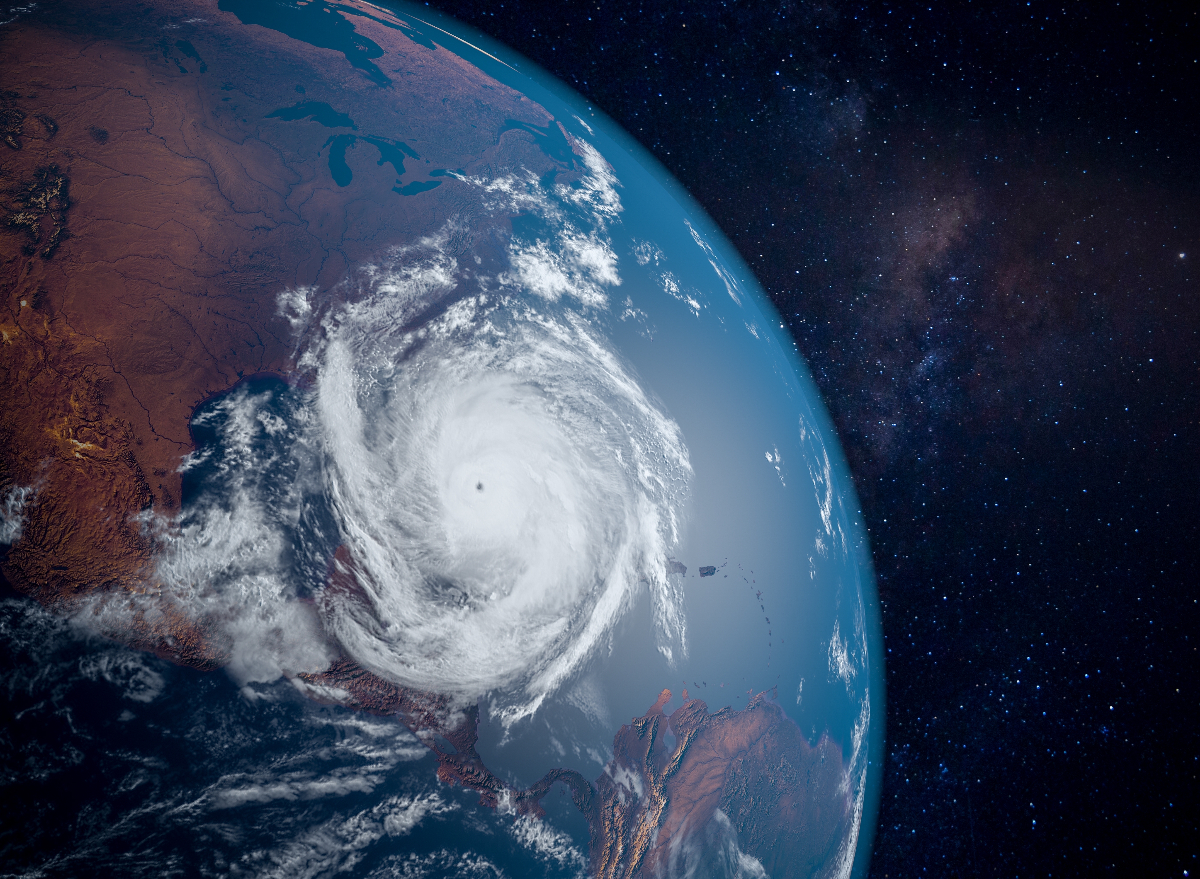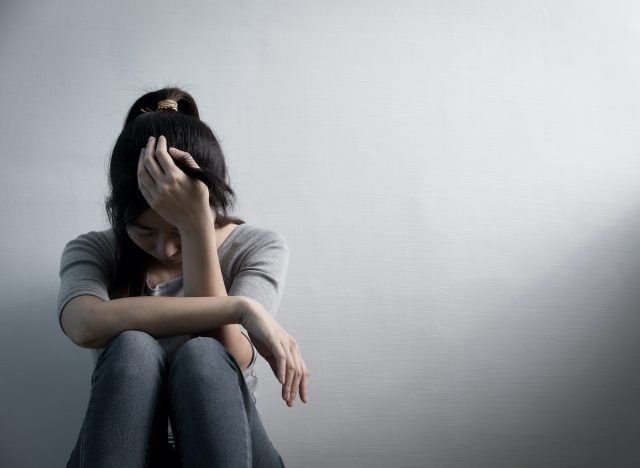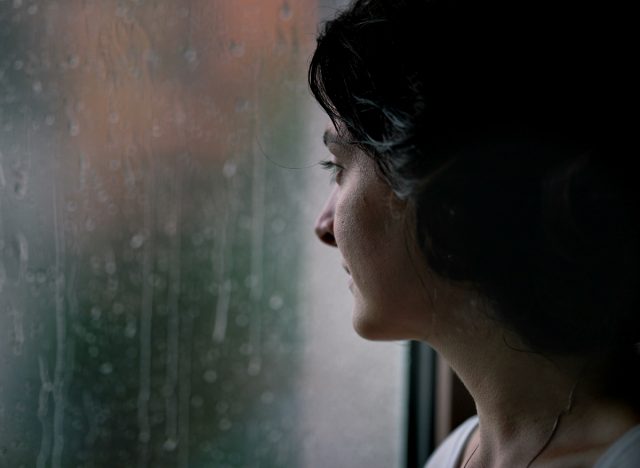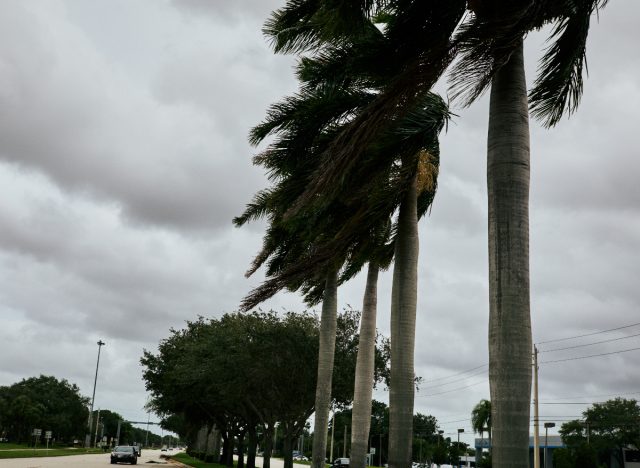How Hurricane Ian Can Affect Your Mental Well-being, Expert Reveals

Hurricanes can be totally devastating, traumatic, and heartbreaking. That description is even an understatement. Flooding alone has been connected to high levels of depression, anxiety, and even post-traumatic stress disorder, according to the American Psychiatry Association. Severe weather disasters destroy homes, businesses, personal property, and lives. We reached out to Dr. Mike Bohl, the Director of Medical Content & Education at Ro, who reveals how a natural disaster like hurricane Ian can negatively affect your mental well-being.
Consistent exposure to dangerous weather events, like hurricane Ian, is linked to mental health issues.

Dr. Bohl explains that when individuals know a hurricane is on its way, they are understandably concerned. Typically, they are worried about their immediate physical needs, such as where they’ll hunker down, if they have enough food and water to get through the storm, and if they need a backup generator. While all of those points are very important to address, what may be put on the back burner to these more immediate concerns is how a hurricane can impact their mental health.
“Studies have shown that repeated exposure to extreme weather events, like hurricanes, is associated with mental health issues,” Dr. Bohl says, adding, “Specifically, those who live through hurricanes may be more likely to experience anxiety, depression, and post-traumatic stress disorder (PTSD).”
Related: Signs A Loved One May Be Struggling With Their Mental Health
The vulnerable position of feeling unsafe in your own home and community is extremely taxing.

Dealing with the aftermath of a natural disaster like hurricane Ian can leave so many individuals with different things to cope with. Hurricanes can strike the fear of being displaced, the stress of necessary repairs post-hurricane, and grieving the harm or loss of a home or loved one. The vulnerable position of feeling unsafe in your own community, actually being right at the center of destruction, and the loss of sleep can be extremely taxing.
“All of this may trigger new mental health issues in those who haven’t had them before,” Dr. Bohl says, adding, “Additionally, if somebody is already being treated for mental health, hurricanes may come with a period of time when there is a lack of access to medications or therapy that are used for treatment. This, in addition to the experience of living through a hurricane and dealing with its aftermath, can exacerbate symptoms in those already dealing with issues of mental health.”
Related: The Most Effective Ways To Talk To Your Kids About Mental Health, Expert Says
Being prepared is the most effective way to deal with challenges that may arise.

Of course, prior to a hurricane, being prepared is the most effective way to deal with any challenges that may present themselves. It’s necessary to stock up on the essentials, most importantly, medications. It’s also wise to have contingency plans in place, should the storm be worse than expected or last for a longer period of time. Being on the ball puts you in a stronger position and will hopefully eliminate extra stress that comes with extreme weather events.
Having a strong support system in place is essential.

It’s important to be mindful of elderly people, children, those with special needs, pets, and individuals with limited language skills, as they are all at extra risk throughout serious weather episodes, according to Ready.gov. Their safety requires extra care and thought.
Dr. Bohl says, “Having a strong support system is also important for dealing with a hurricane before, during, and after it occurs. Having a network of friends and family who can assist—but also who are just there to talk with and support you—can help mitigate mental health symptoms.”
Don’t hesitate to seek out the help of a medical professional if you need it.

It’s important to accept your feelings so you can move forward. There are many resources and much assistance in place to help. You shouldn’t hesitate to seek out help from a medical professional if you need it. “Some mental health issues, like PTSD, may not show up until months after an event. Making sure you are already connected with a healthcare professional or therapist means you already have somebody who can help you process what you’re experiencing as any symptoms arise,” Dr. Bohl adds.








